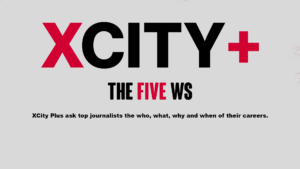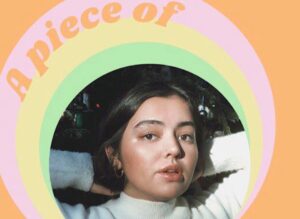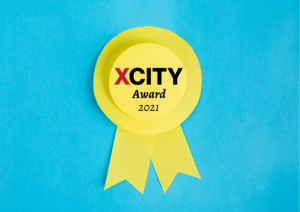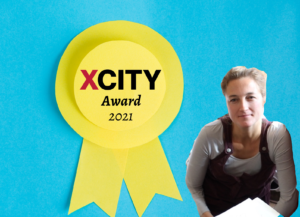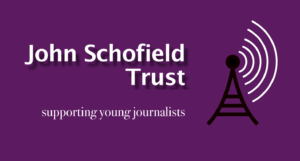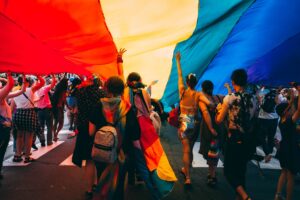
From left to right: Lis Howell, Nana Ama Agyemang Asante, Suzanne Franks, Betty Kankam-Boadu. Images: Expert Women Project.
The use of women experts in TV news programmes has gone “backwards” during the COVID-19 pandemic, according to the lead researcher of a City project tracking the use of female specialists on television.
The Expert Women Project was set up in 2013 by Lis Howell, Professor Emeritus of Journalism at City University. The project counts and reports the number of women interviewed as experts or authority figures on six major UK news programmes.
The BBC News at Ten, ITV News at Ten, Channel 4 News, Channel 5 evening news, theToday programme, and Sky News are all surveyed over a five-day working week in randomly selected months.
Since the Expert Women Project began over eight years ago, the ratio of women experts to male experts has almost doubled – from an average of 4.4 men to one woman in 2014, to an average of around 2.1 men to one woman now.
“The news was very dominated by political speculation and politics. And because our politicians are predominantly male, that skewed the figures”
But at the start of the pandemic in March, Prof Howell said the ratio of women experts to male experts on the surveyed programmes had “gone backwards” because of the number of politicians on air in March. “It was a very male dominated cabinet then,” she explained.
“The news was very dominated by political speculation and politics. And because our politicians are predominantly male, that skewed the figures. That, as well as the slight tendency towards men as authority figures at a time of uncertainty.
“The ratio of men to women experts peaked in March 2020 with a three-year-high of 2.7 men experts to every woman expert interviewed on the flagship news programmes – up by 20 per cent from the week monitored in February.”
In April, the proportion of women experts came surging back to offset the politicians as broadcasters began to focus on healthcare – the practice rather than the policies. “This brought the female ratio right up,” Prof Howell said. The overall ratio for April was 2.1 men to one woman.
The NHS has four times as many women as men, and even in the top rank, has a ratio of only 1.7 men to one woman – unlike the cabinet at 2.7 to one.
“Keep your foot on the accelerator”
However, Prof Howell said: “Before the pandemic it was getting to be much more like two or less, more like one to one. But it’s gone backwards, so you’ve got to keep your foot on the accelerator.
“It doesn’t just go away and you have to fight the assumptions of people who want everything to be fine,” she added. “What the ratio should be is two to one or less. Anything over two to one is bad because the ratio of expertise in society is roughly two to one.”
“Broadcasters were even more discriminating towards women than society generally – and that’s a real condemnation. It’s now stopped, and they tend to mirror reality much more,” she added.
“We are throwing light on society and on the way that women are taken seriously or not seriously – and as we’ve shown, you can really affect change”
Despite the challenges, the project has come a long way in the last eight years. Prof Howell said it started off as a campaign or “a bit of angry fun”, and it is now under consideration as an Impact Case Study (ICS) by the Research Excellence Framework, the body that assesses the quality of research in higher education institutions in the UK.
Suzanne Franks, Professor of Journalism at City, who also works on the project, said: “The research shows that we have basically doubled the proportion of women experts versus men experts in news broadcasting overall.”
Prof Franks explained that to qualify as an ICS: “We must prove that practice in the industry had actually changed as a result of our research. That was a complex exercise because we had to get proof – right from the Director General of the BBC downwards, to all sorts of Lords and committees.
“We are throwing light on society and on the way that women are taken seriously or not seriously – and as we’ve shown, you can really affect change.”
The Ghana Project
The Expert Women Project is now expanding to Ghana after receiving £15,000 from the Global Challenges Research Fund (GCRF), which is provided by Research England. The GCRF supports cutting-edge research to address the challenges faced by developing countries.
Nana Ama Agyemang Asante and Betty Kankam-Boadu, two working journalists in Ghana, lead the project under Reseau Afrique Digital, a media start-up focusing on online content.
Prof Howell said: “It’s very interesting there, because it’s quite different. The methodology works, but you have to adapt to the sort of programme they’ve got there.”
“You’ve got to count because otherwise, you’ve just got this set of anecdotal impressions – and those are meaningless”
“I think they’ve been quite surprised at the high ratio of men,” she added.
Prof Franks agreed: “It’s all about the counting. You’ve always got to count because you’ve got to have the evidence. There’s all these kinds of impressions that people have, like ‘women are everywhere’, or ‘there’s loads of women presenters’.”
“But you’ve got to count because otherwise, you’ve just got this set of anecdotal impressions – and those are meaningless.”
They hope to expand the project to India next.

